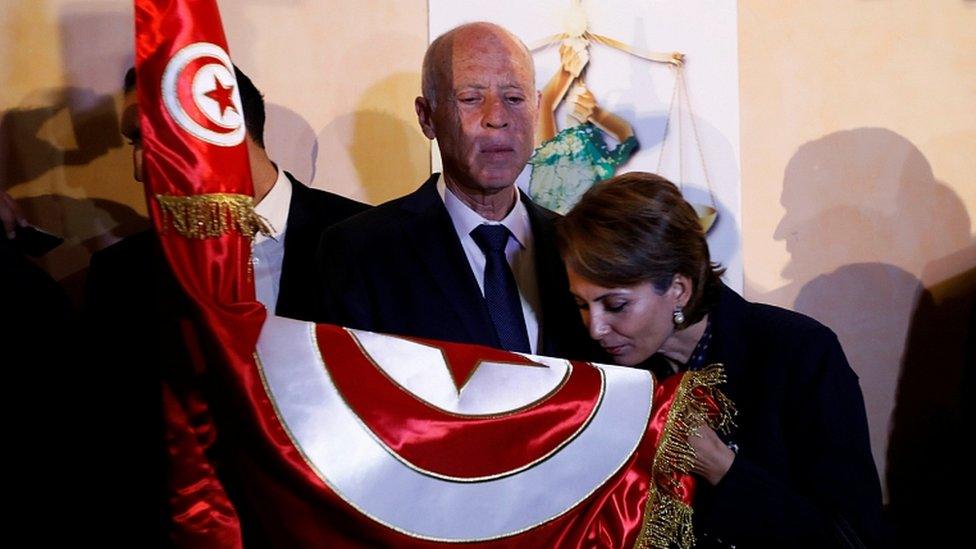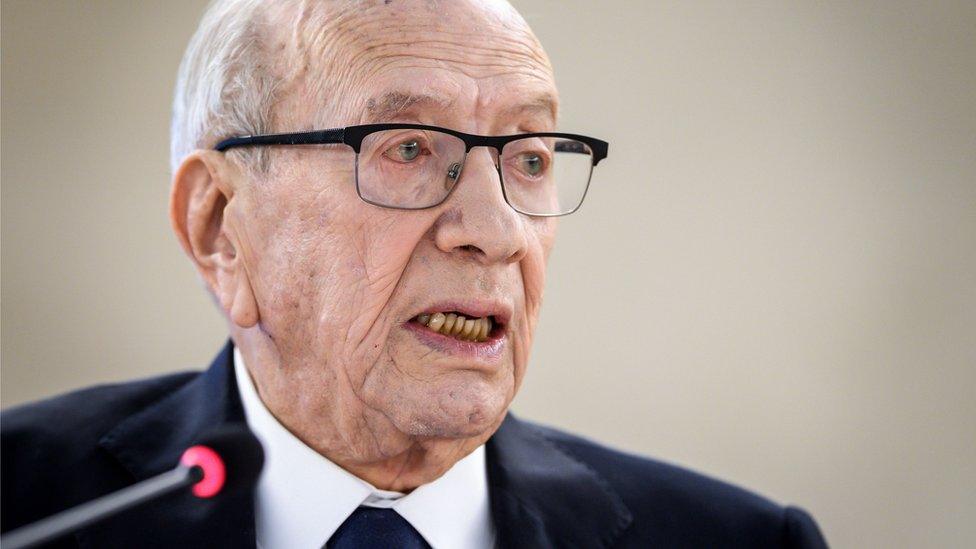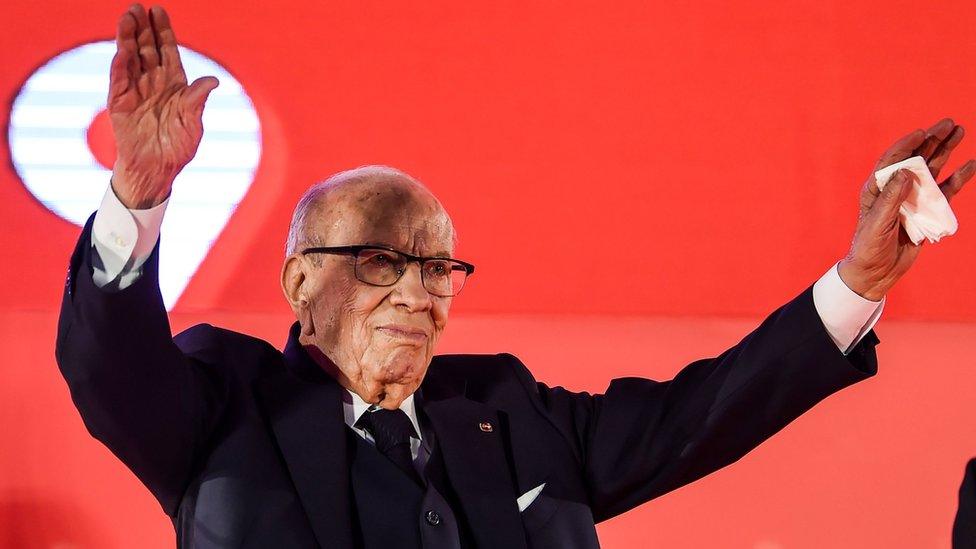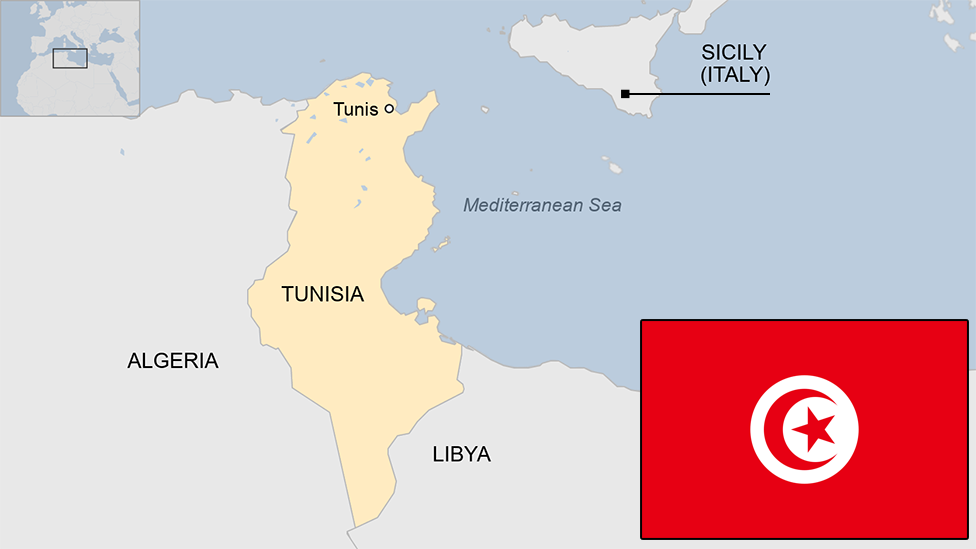Tunisia election: Kais Saied to become president
- Published

According to exit polls more than 90% of young people supported Kais Saied
Retired academic Kais Saied is set to become Tunisia's next president after a landslide victory in Sunday's vote.
The electoral commission announced that the former law professor, 61, secured 73% of votes in the run-off election.
He was up against media mogul Nabil Karoui, 56, who had campaigned from prison after being arrested on charges of money laundering and tax fraud.
Exit polls suggested that Mr Saied benefited from huge support among young voters.
Shortly after the exit polls were released, the president-elect appeared in front of jubilant supporters in Tunis and thanked "young people for turning a new page" in Tunisia's history.
"We will try to build a new Tunisia. Young people led this campaign, and I am responsible for them," he said, flanked by his family.
Some were impressed by Mr Saied's reputation of not being corruptible, Reuters news agency reports.
Supporters of Kais Saied celebrated as the exit polls came through
"Saied is clean and represents us. We know very well that he does not have a magic wand," one student was quoted as saying.
The electoral commission said 55% of those registered to vote cast their ballots.
Mr Karoui, who denies the charges against him, appeared to concede defeat after sending a congratulatory message to his electoral rival.
But before Sunday's vote he complained that it had not been a fair campaign, because he was freed by a court order just four days prior to the poll.
In the first round of voting, Mr Karoui took 15.6% of the vote to Mr Saied's 18.4%.
Who is Kais Saied?
Nicknamed "the robot" for his stern manner, Mr Saied ran a shrewd campaign, with almost no advertising, on a message of integrity and anti-corruption targeted at young Tunisian voters.
Mr Saied was on the committee of experts that helped parliament draft Tunisia's post-Arab Spring constitution, adopted in 2014. He occasionally appeared on television as a political commentator.
In the week before the polls, he announced that he would not campaign while his rival was in prison.

During the campaign Kais Saied said his wife, Ichraf Chebil, would not hold the title of First Lady if he became president
He has promised electoral reforms, including changes to local elections for regional representatives.
Critics have attacked his conservative social views, however.
In an interview with a local newspaper, he accused foreign powers of encouraging homosexuality in the country.
He is in favour of restoring the death penalty, suspended since 1994 in Tunisia. He also opposes equal inheritance for men and women.
What is the significance of the poll?
The election was brought forward after the death in July of Tunisia's first democratically elected president, Beji Caid Essebsi.
He took office in 2014, three years after a popular uprising which led to the overthrow of long-serving ruler Zine al-Abidine Ben Ali and sparked the Arab Spring.
Correspondents say that while the Arab Spring gave Tunisia democracy eight years ago, it has not delivered the economic benefits they had hoped for.
- Published11 October 2019

- Published25 July 2019

- Published25 July 2019

- Published9 October 2024
